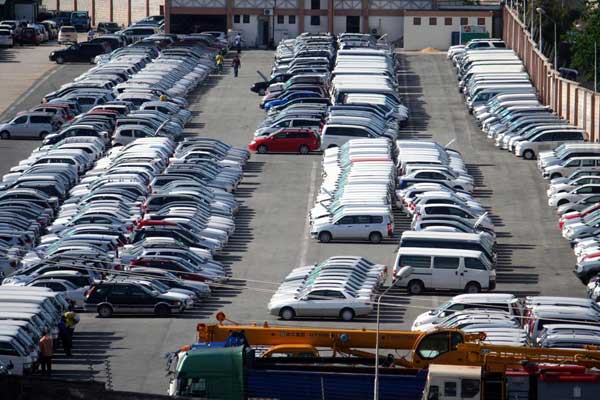
The Kenya Revenue Authority (KRA) has slapped higher taxes on importers of second-hand vehicles ahead of a new duty that will push the prices up by Sh200,000.
The revenue authority reviewed the current retail selling price of second-hand vehicles in October 15.
This is the benchmark the taxman uses to calculate taxes.
Documents seen by the Sunday Nation show the prices of a Toyota salon car has gone up by over Sh300,000 after the review.
This comes at a time when second-hand vehicles over three years old are expected to attract an excise tax of Sh200,000 each, after President Uhuru Kenyatta signs the new excise duty Bill.
“It’s like double taxation, especially for vehicles which are already in the high seas. Dealers who will not be able to meet the revised charges will lose their property,” a trader who requested anonymity for fear of victimisation said.
The taxman revised the retail selling price to collect taxes based on the most current figures the vehicles are selling at.
KRA has been accused of arbitrarily raising the rates even for vehicles that are not being manufactured.
Critics argue that the taxman should revert to calculating the revenue based on vehicle invoice value, which offers better fraud controls and is less arbitrary, inconclusive and unpredictable.
The prices of over 2,000 vehicle types, 50 motorcycle models, 30 trailers brands, 100 tractors and 20 generators have been reviewed.
The taxes on a used Chevrolet Trailblazer will be Sh4.3 million while those on a second-hand Land Rover Defender will be Sh5 million.
Taxes on BMW motorbikes, the model used by the presidential escort, will be Sh1 million to Sh4 million, depending on the model.
Efforts to reach the taxman were unsuccessful as the Sunday Nation was told to email the queries but no response was provided.
The revenue authority says they will collect Sh21 billion in tax under the new law.
Imported vehicles less than three years old will attract an excise duty of Sh150,000 each.
At the same time, motorcycles popular with many Kenyans will attract excise tax at Sh10,000 a unit, hitting the boda boda business hard.
The revenue authority calculates taxes on the basis of 25 per cent import duty, 20 per cent excise duty and 16 per cent VAT.
President Kenyatta declined to sign the Bill into law after Parliament altered it, but an associate director at professional services firm Ernst & Young, Mr Francis Kamau, said the new Bill will most likely be assented to by the President.
The Kenya Revenue Authority has struggled to meet tax collection targets in the first three months of the year, following a wave of staff retrenchment by big companies, reduced profits and a freeze on state employment, all of which impacted on the Pay As You Earn segment.
There has also been a growth in corruption by staff at KRA has which contributed to lower collection rates.
A freeze on pay increments for civil servants and a slowdown in private sector growth also led to the drop in tax collection.
[“source-allafrica”]





